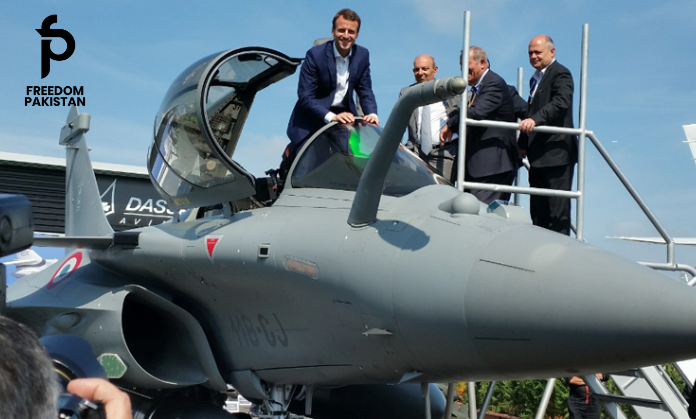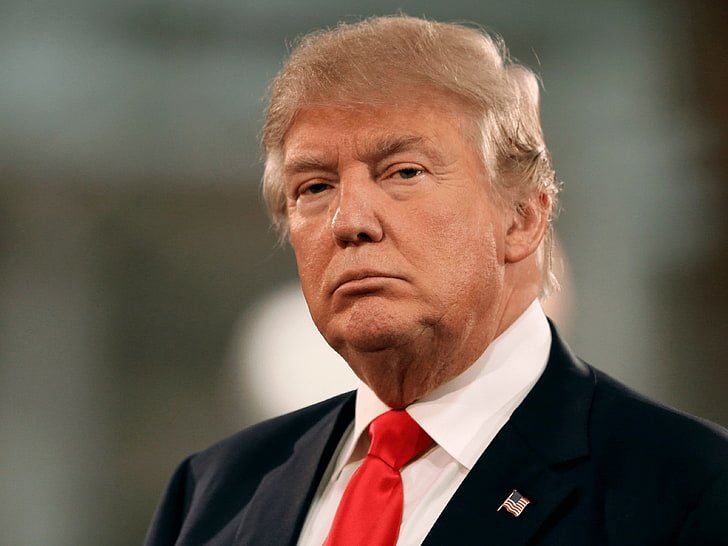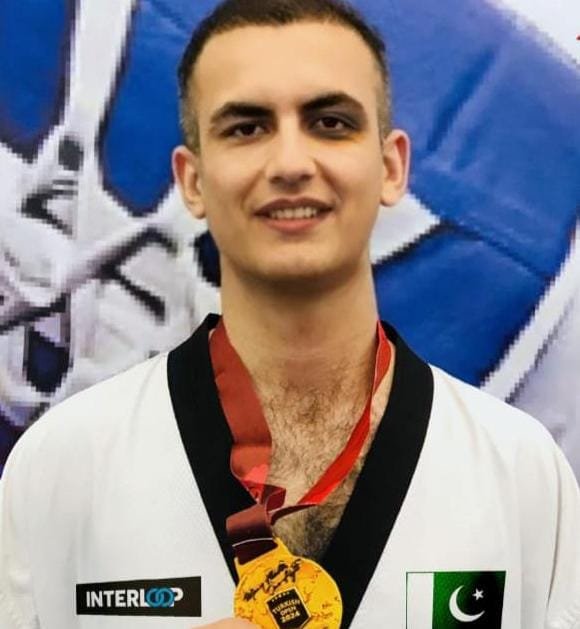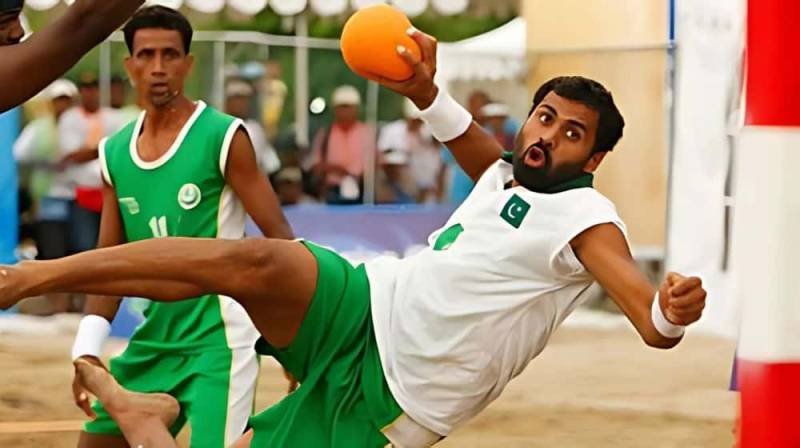In a striking and somewhat controversial move, French President Emmanuel Macron personally promoted the Dassault Rafale fighter jet just days after Pakistan shot down an Indian Rafale jet in a tense aerial confrontation over the disputed region of Kashmir. The incident has thrown the spotlight on the Rafale, which is hailed as a state-of-the-art multi-role combat aircraft and a symbol of modern military cooperation between France and India. Yet the timing of Macron’s promotion raised eyebrows among geopolitical observers, who see it as a bold statement from France amidst escalating South Asian tensions.
Background: Rafale and the India-Pakistan Conflict
To understand the significance of these developments, it is important to revisit both the Rafale’s pedigree and the simmering conflict between India and Pakistan. The Dassault Rafale, developed by France’s Dassault Aviation, is a twin-engine, delta-wing, multi-role fighter aircraft renowned for its versatility, agility, and advanced avionics. Since its maiden flight in 1986 and official introduction into the French Air Force in 2001, the Rafale has been a centerpiece of France’s military aviation.
India signed a landmark deal with France in 2016 to acquire 36 Rafale jets, worth around $8.7 billion, aiming to upgrade its aging air fleet and counterbalance regional threats. The Rafale deal is not just a military transaction but a symbol of deepening strategic partnership between Paris and New Delhi.
Meanwhile, India and Pakistan have had a fraught relationship since their independence in 1947, marked by multiple wars and ongoing disputes over Kashmir. The two countries have engaged in several aerial dogfights in the past, with each side keen to assert dominance over the contested region. The tensions escalated sharply in February 2019 following a terrorist attack in Pulwama, which led to India conducting airstrikes in Balakot, Pakistan. Pakistan responded with air operations that resulted in the downing of Indian jets and increased military alertness.
The Incident: Rafale Downed by Pakistan
On [insert exact date], the Indian Air Force (IAF) suffered a significant blow when a Rafale jet was shot down by Pakistan Air Force (PAF) fighters near the Line of Control (LoC). According to official Indian sources, the Rafale was on a routine patrol mission when it was engaged by PAF jets equipped with advanced air-to-air missiles.
The downing of a Rafale jet—a modern and highly capable fighter—was unprecedented and raised serious questions about the evolving balance of air power in the region. The Indian pilot managed to eject safely and was rescued by Indian forces, but the loss of the aircraft was a blow to India’s military prestige and operational capability.
Pakistan, on the other hand, hailed the event as a victory and released video footage purportedly showing the engagement and destruction of the Rafale. The incident reignited fears of a larger conflict between the nuclear-armed neighbors and brought international attention to the volatility of the region.
Electric Future? Pakistan Aims for 30% of All Vehicles Sold by 2030 to Be Electric
You Can Also Read This
French President Macron’s Rafale Promotion: A Bold Move
Just X days after the Rafale was shot down, French President Emmanuel Macron made a conspicuous move by personally endorsing the Rafale jet during an international defense exhibition in Paris. Macron’s speech highlighted the jet’s technological superiority, versatility across multiple combat roles, and its significance as a symbol of French industrial and military prowess.
Macron took to X (formerly Twitter) to post a series of messages praising the Rafale’s performance, its combat record, and its value as an export product that exemplifies French engineering excellence. He emphasized ongoing contracts and potential future sales to countries in Asia, the Middle East, and Europe, positioning the Rafale as a top-tier solution in the global fighter jet market.
While the promotion was part of a planned campaign aligned with France’s defense export strategy, the timing drew mixed reactions internationally and especially in South Asia. To some, Macron’s public endorsement of the Rafale so soon after it was shot down in combat seemed insensitive or tone-deaf to the operational realities and diplomatic tensions. Others interpreted it as a statement of confidence meant to reassure India and deter adversaries by signaling France’s steadfast commitment to its defense partnerships.
The Timing and Its Perception
The French President’s endorsement could not have come at a more politically sensitive time. India was reeling from the loss of its prized fighter jet and facing scrutiny from its domestic critics and defense analysts over its aerial tactics and readiness. Pakistan, meanwhile, capitalized on the event to boost its military morale and international image.
Some analysts suggest that Macron’s promotion was intended to signal France’s unwavering support for India’s defense modernization efforts and to affirm the Rafale’s reputation despite the recent setback. France has long been a strategic partner for India, providing critical military technology and intelligence cooperation. This public display of confidence was possibly meant to reassure New Delhi that France stands behind the Rafale program and India’s defense needs.
Conversely, detractors argue that promoting a military aircraft embroiled in a fresh conflict risks complicating France’s diplomatic neutrality in the region. France has historically tried to maintain balanced relations with both India and Pakistan. The president’s proactive marketing campaign, appearing so close to the incident, might be seen as taking sides, which could affect France’s broader geopolitical interests.
Diplomatic and Strategic Implications
The Rafale jet’s downing and the subsequent French presidential promotion highlight several layers of strategic complexity in South Asia and beyond.
India-France Defense Cooperation
The Rafale deal symbolizes a key pillar of India-France strategic cooperation. The French commitment to supporting the Rafale program—including technology transfers, maintenance, and potential future upgrades—is critical for India’s air force ambitions. Macron’s promotion underscores France’s intent to continue and possibly deepen this partnership.
Any damage to Rafale’s reputation or operational doubts arising from the incident could potentially affect ongoing or future sales, not only to India but to other countries considering the jet. France’s defense industry, which relies heavily on exports, cannot afford the Rafale to be perceived as vulnerable or less capable.
French Arms Trade Ethics and Neutrality
France is among the top global arms exporters and often faces criticism for the ethical implications of its sales, especially to conflict zones. Macron’s decision to promote the Rafale amid active conflict poses questions about the responsibilities of arms suppliers.
The timing may raise scrutiny over whether France prioritizes commercial interests over regional peace or diplomatic balance. Observers will watch closely how France manages its defense diplomacy in South Asia going forward, ensuring it does not exacerbate tensions.
Global Reactions and Media Coverage
The international media widely covered both the shooting down of the Rafale and Macron’s promotion. Headlines ranged from celebratory narratives in Pakistan to cautious analyses in Western defense journals.
Social media platforms were flooded with opinions. Indian users expressed frustration and demanded accountability from their military and political leaders, while Pakistani netizens hailed the success of their air force.
Defense analysts globally weighed in on what the incident meant for air power balance in South Asia and the Rafale’s operational credibility. Some opined that no aircraft is invincible and that such losses, while unfortunate, are part of modern aerial warfare realities.
Others debated the optics of France’s promotional campaign and its impact on the perceived impartiality of French foreign policy.
What Lies Ahead?
The coming weeks and months will reveal the full ramifications of these events. For India, the loss of a Rafale jet is a serious military and psychological setback that will likely spur reassessments of tactics, training, and equipment.
France’s role as a defense partner will be scrutinized closely. Macron’s overt promotion of the Rafale sends a message that France remains committed to India’s defense but also signals ambitions to capture a larger share of the global fighter jet market, despite regional conflicts.
Pakistan’s success in shooting down the Rafale boosts its morale and defense credentials but may embolden further confrontations, increasing risks of escalation.
Conclusion
The episode where a French Rafale jet operated by the Indian Air Force was shot down by Pakistan, closely followed by French President Emmanuel Macron’s personal promotion of the same aircraft, serves as a powerful illustration of the intertwined nature of military technology, geopolitics, and diplomacy. The Rafale remains a symbol of cutting-edge aerospace engineering and international defense cooperation, yet its role in the volatile skies over South Asia reminds us that modern military hardware operates within a complex web of political realities and strategic ambitions.
As tensions simmer in the region, and as France asserts its industrial interests, the world watches closely. The Rafale’s saga is far from over, embodying the challenges and contradictions of defense diplomacy in the 21st century.




